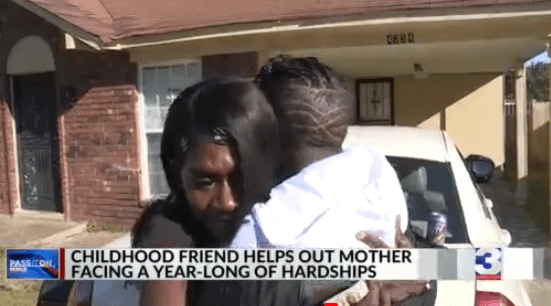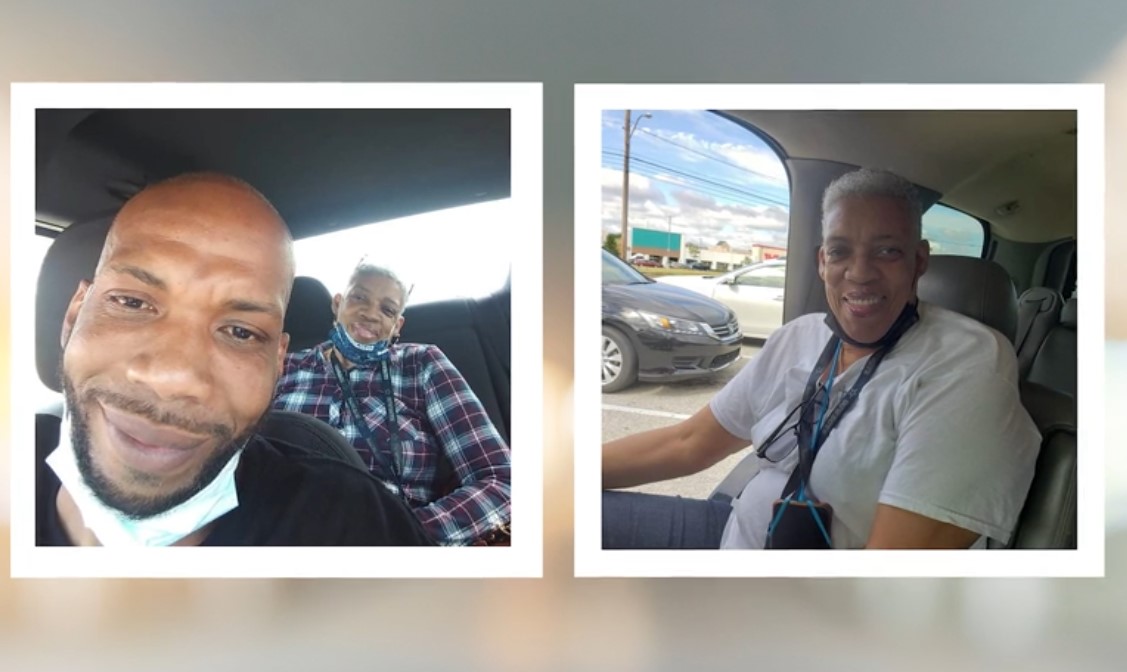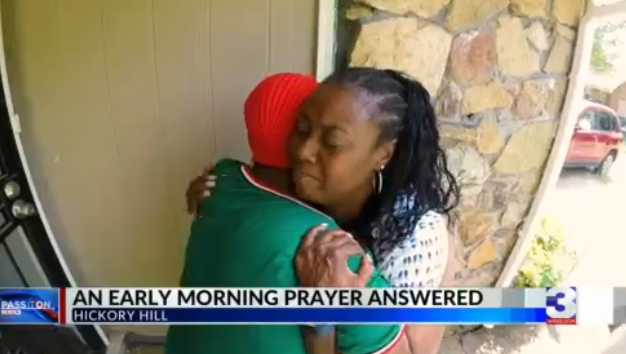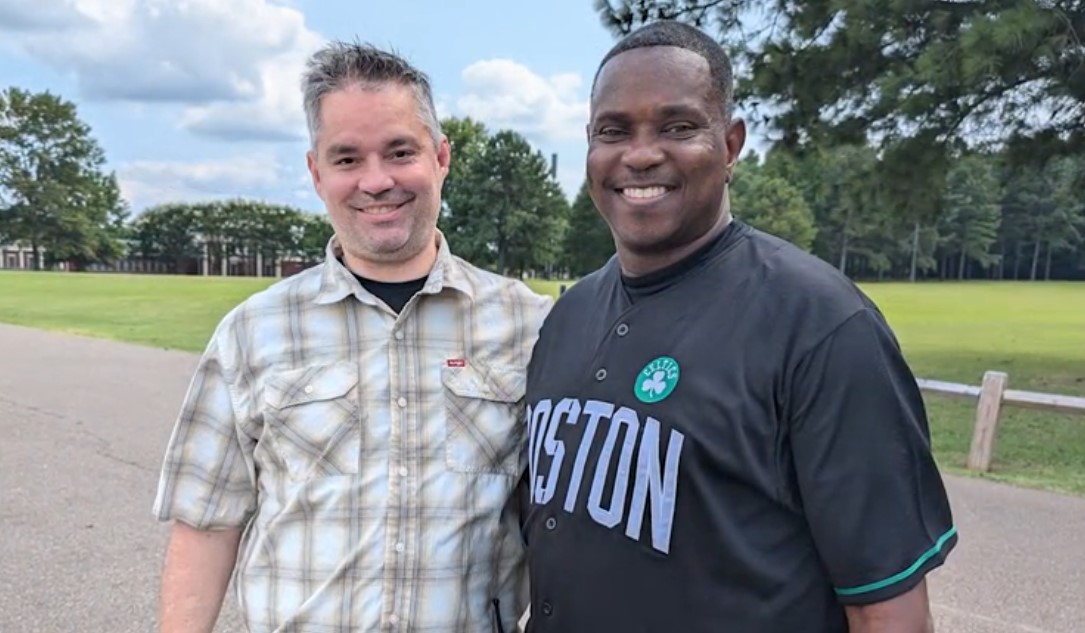MEMPHIS, Tenn. — On Jan. 30, attorneys representing an advocacy organization for black farmers are scheduled to go before an appeals court to argue their case about expanding payments to more farmers, previously excluded from a recent government assistance program.
Meanwhile, a months-long WREG investigation reveals complaints from several of the organization’s members who say the group claiming to help them is, in fact ,hurting them.
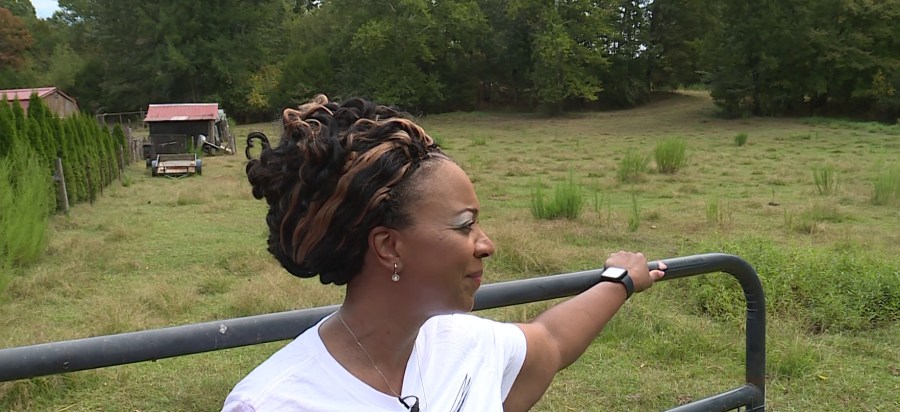
Consider it a calling Stephanie Smith hadn’t planned to answer. As a young woman, Smith says she didn’t see herself living on a farm, let alone helping to tend to cows.
“Now, I couldn’t imagine myself anywhere else. This home, this is us,” said Smith as she leaned on a fence that separates their home from the rest of the land on their sprawling property.
Smith’s husband is a fourth-generation farmer in West Tennessee.
“It’s so important that we keep all of this in the family,” said Smith.
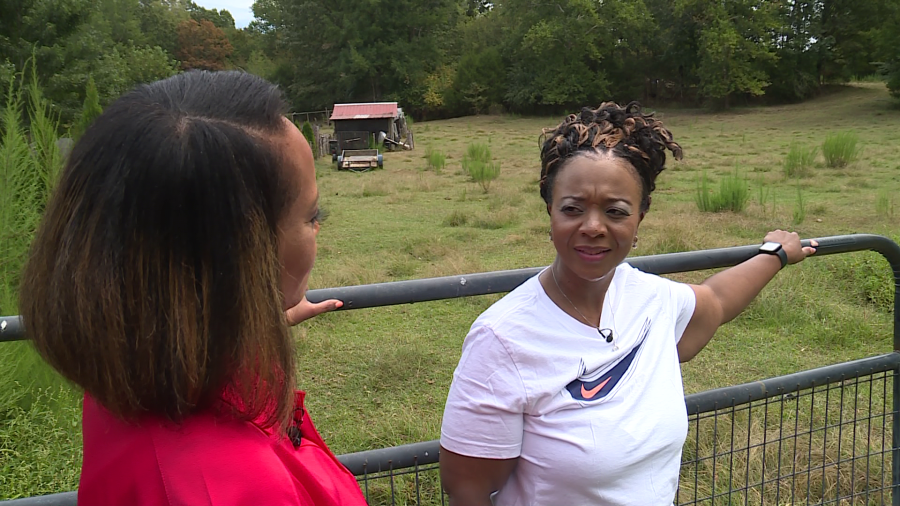
But carrying on that legacy, including caring for cattle on 50-plus acres isn’t easy or cheap.
Smith explained to WREG, “You have to buy food, you have to make sure that they’re warm, you have to make sure that they are healthy.”
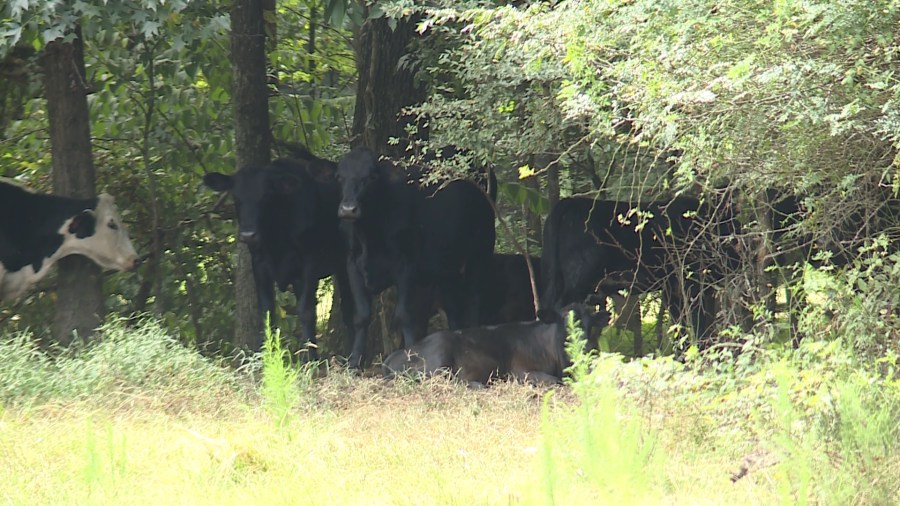
So after being denied government loans in the past, the Smiths decided to apply for the U.S. Department of Agriculture’s Discrimination Financial Assistance Program.
DFAP would issue payments to farmers and ranchers to help grow or start operations.
Smith said, “We were thinking, this is going to be just what we need.”
Smith says her family met with a group led by a local pastor and his wife to learn more about the program.
“They talked a lot about racism over the years and how hard it was for people to even complete the application process,” Smith told the NewsChannel 3 Investigators.
She says they were also encouraged to become a part of the Black Farmers and Agriculturalists Association.
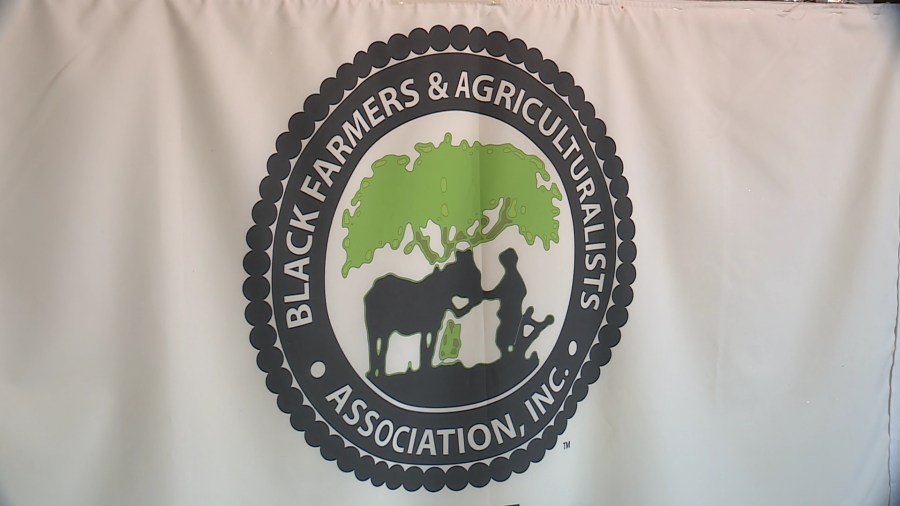
The national organization headquartered in Memphis has been around for nearly 30 years and boasts about its history of helping black farmers.
“In order for them to be able to assist us, we needed to join their organization. So there was a $100 fee,” said Smith.
Smith continued, “They did stress to us, we’re not charging you to complete the 40 pages, but you do have to give us a donation.”
That donation, according to Smith, was $40.
However, Smith explained it seemed like a small price to pay for the assistance of people who understood the paperwork.
Smith walked us through how it was presented to them, “We know what they’re looking for. We understand the language and we’re going to take care of that entire process for you.”
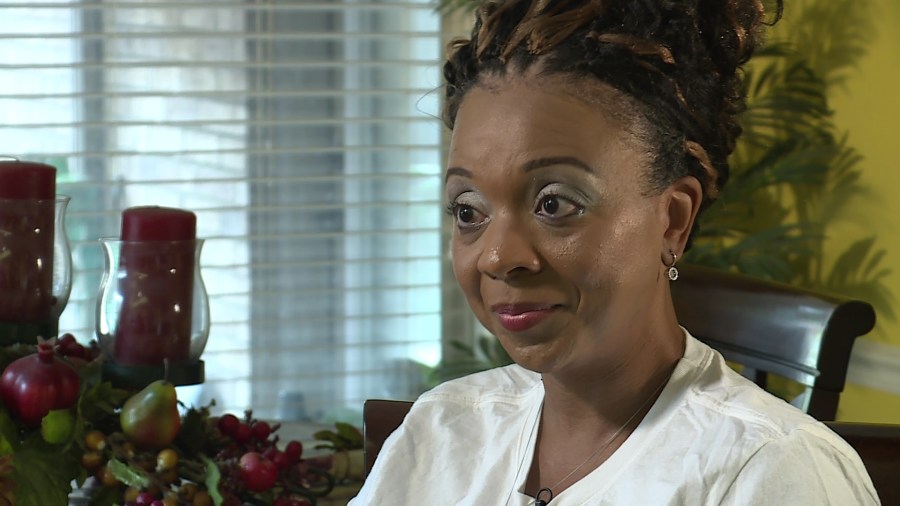
So Smith added, “We felt like we were going to be in good hands.”
The DFAP application deadline was extended from October of 2023 to Jan. 17, 2024.
Smith said months passed, and they never heard anything, except a request for an additional donation from the couple they’d handed over payments to and lots of personal information to file on their behalf.
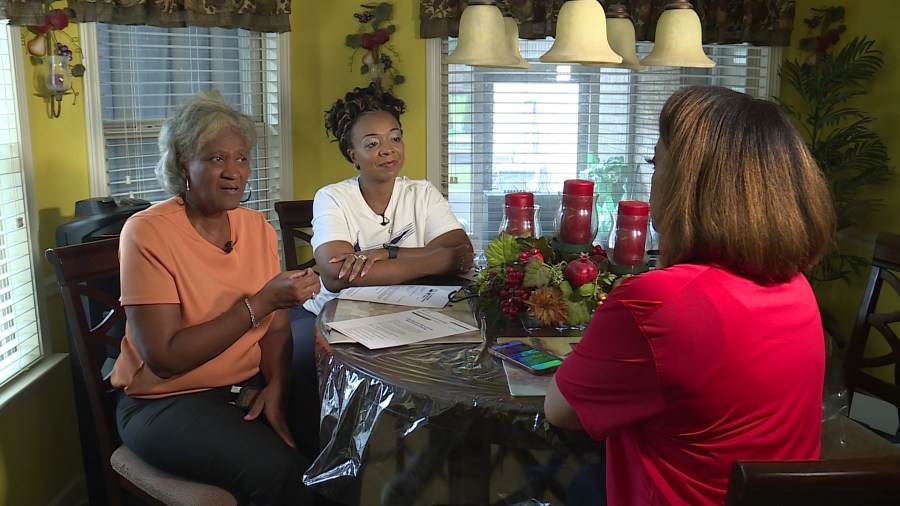
And because farming is a family affair, Smith’s sister-in-law Mildred and her husband who help with the cattle and farm row crops also joined in, along with other relatives.
“So at this point, they’ve gotten a total of $260, you know, per person,” explained Smith.
Then in August of 2024, Stephanie Smith’s husband received a letter from the USDA.
She read it aloud to WREG as we sat in her kitchen on a late summer afternoon.
“This letter is to inform you that your application has not been found eligible for financial assistance under the parameters of the program.”
The reason cited in the letter read, “The application was submitted after the deadline.”
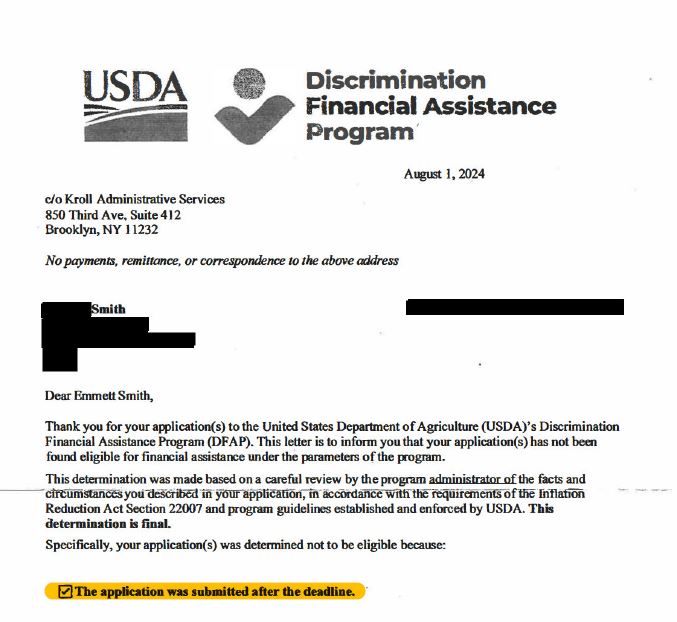
Smith explained their confusion after receiving the letter, “We came to you and we gave our money to you all the way back in October, long before any deadline.”
Her sister-in-law Mildred Smith said, “You guys … took our money and we need to know what’s going on!”
Smith’s denial letter is dated Aug. 1. A day earlier, the USDA announced it issued more than $2 billion in payments to more than 40,000 applicants for its Discrimination Financial Assistance Program.
Smith said when she called the couple that helped them she was told, “Oh don’t worry about that, that letter is a scam.”
However, the Smith’s denial letter was no scam. In fact, around the same time, the USDA was warning about scams on its website.
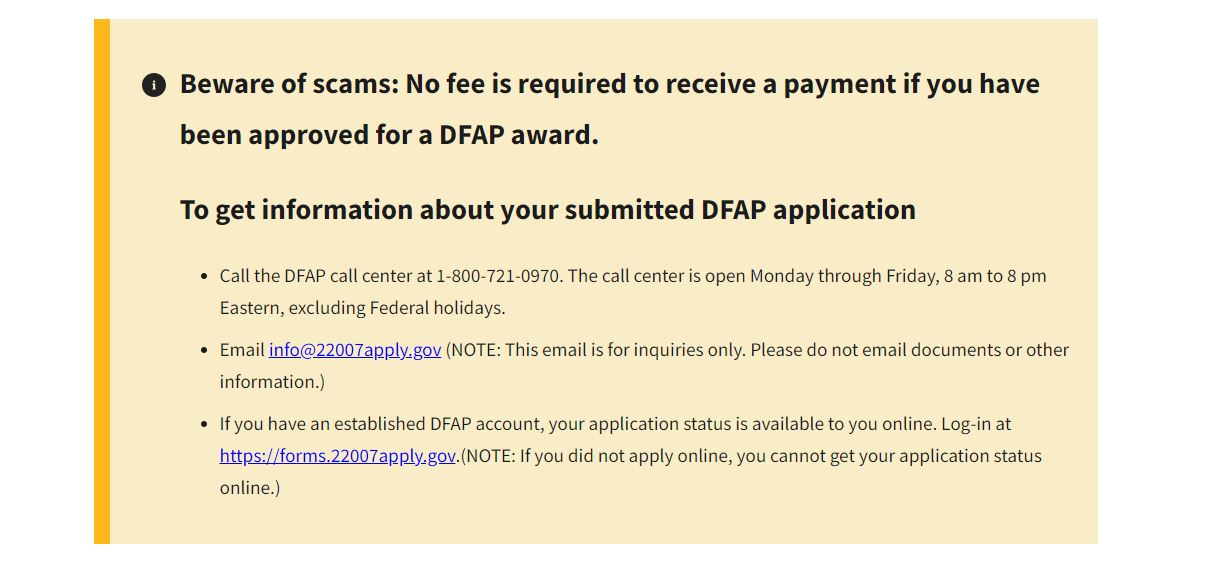
A spokesperson told the WREG Investigators, “We are aware of scams misleading people to believe the program will reopen, which is not true, and that some organizations have collected fees from potential applicants under false pretenses.”
After getting the runaround, including claims of a system crash, Smith says from the people who agreed to help file the application, she called the USDA directly and said a representative told her exactly when the application was submitted.
“That’s so unfortunate because we received your application June 11th, 2024,” said Smith of what she learned after reaching out to the DFAP hotline included on their denial letter.
That date was five months after the deadline.
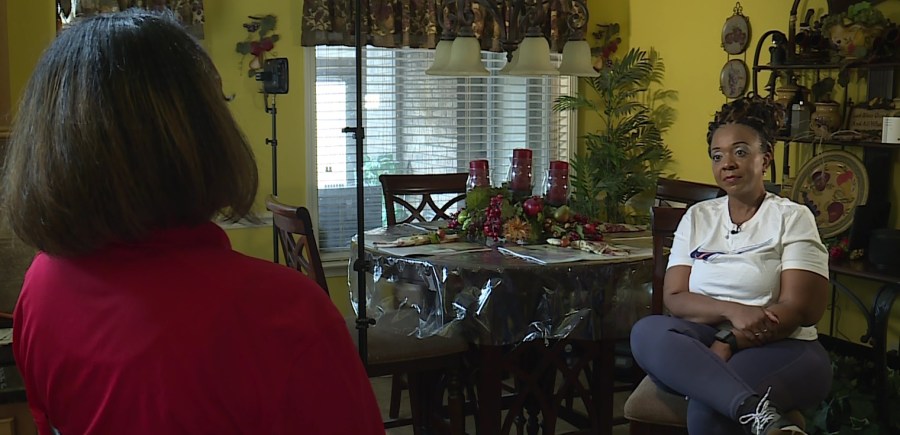
WREG asked Smith, “How did you feel when you heard all of that from DFAP?”
She replied, “We were hurt, there’s no other word. We were hurt.”
The USDA sent WREG a list of organizations it contracted with that held free meetings across the country to educate people about its Discrimination Financial Assistance Program. The Black Farmers and Agriculturalists Association wasn’t one of them.
We tried to speak with James Williams, who Smith says signed them up for BFAA, taking their membership dues and that donation.
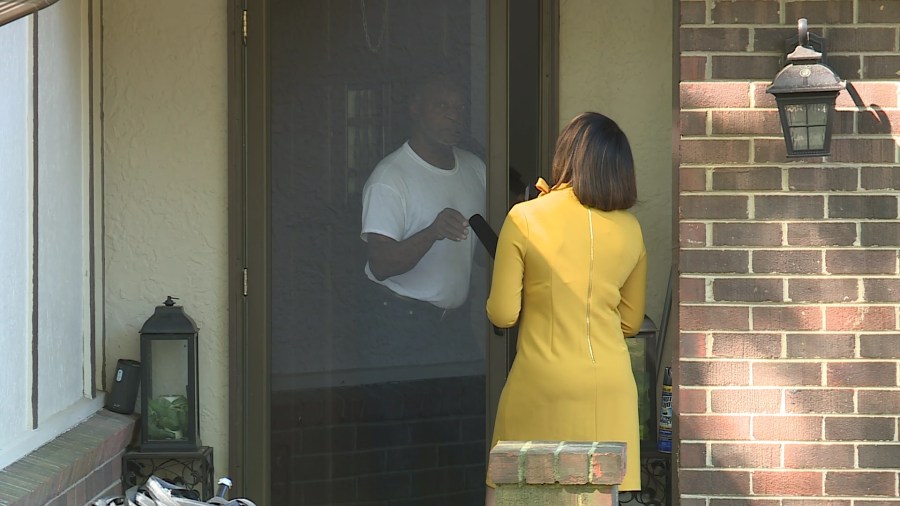
Mr. Williams answered the door and after introducing ourselves, The WREG Investigators explained we were working on a story about DFAP and we had received some complaints from people who said that their applications were not submitted.
Williams replied, “I decline to comment on this time. We’ll get back with you later.”
We never heard back from Mr. Williams, but asked BFAA’s president and founder Thomas Burrell if he was familiar with Williams, his wife or the complaints surrounding his organization.
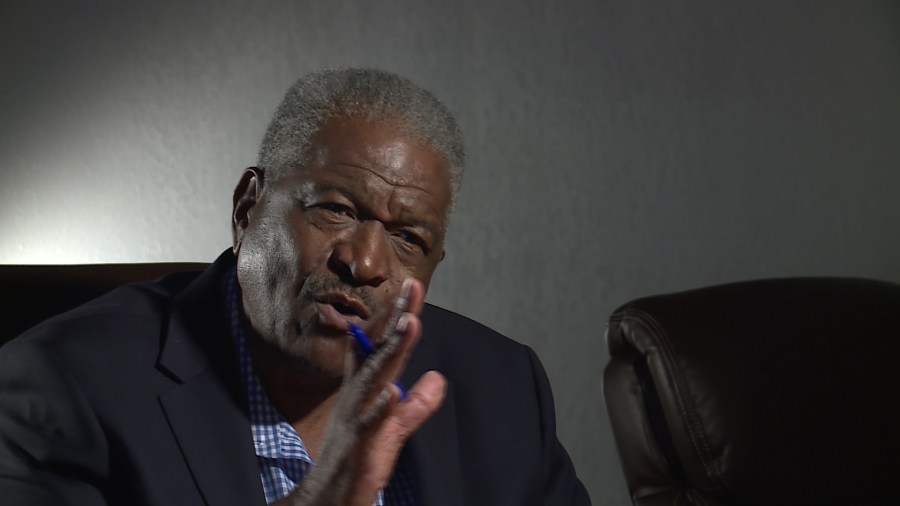
The WREG Investigators asked Burrell, “Did you all ask people or require them to pay to join and then sign up before engaging in conversation about DFAP or anything else that you all were working on at the time?”
He replied, “There is an emphatic answer to that one Zaneta, and it’s no.”
We continued, “Okay because these folks, they, several of them submitted to Pastor James and Marcia Williams, who said they were working for the organization.”
Burrell continued, “Trust me, no one in this office, the individuals that you just name does not work (here). They’re not affiliated with this office.”
In fact, Burrell says his organization encouraged their members not to apply for the Discrimination Financial Assistance Program.
They sued the head of the USDA in federal court, on the basis that DFAP should allow applications submitted on behalf of estates, or heirs of farmers who have since passed away.
“As long as USDA is discriminating against Black farmers, why shouldn’t there be a means to compensate these individuals?,” was the question Burrell posed about DFAP in explaining why they sued.
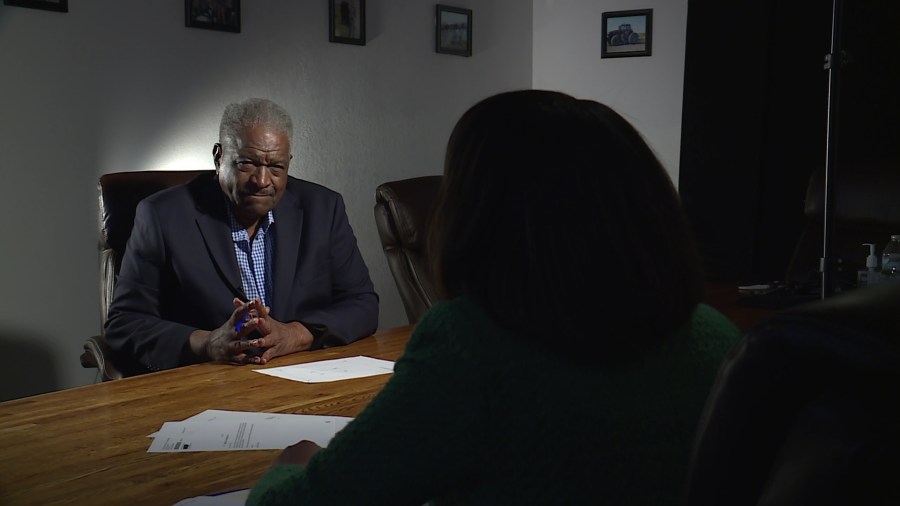
The WREG Investigators also asked Burrell if he filled out an application himself.
“No. I didn’t think it would have been right for me to fill out that application and get paid and at the same time advocating that there’s something wrong and suing USDA,” said Burrell.
BFAA’s case is headed to a federal appeals court. Oral arguments are scheduled for Thursday, Jan. 30.
“If we prevail in this lawsuit, those very individuals, except the ones who swung at the foul ball, will be a part of this,” Burrell told WREG.
Meanwhile, Smith told WREG that as of fall 2024, “They are still taking applications, they are still getting money from families and so for us, it, you know, became we have to stop them.”
Smith says they haven’t been able to get a copy of her husband’s application from DFAP, but the denial letter shows it was submitted in his late father’s name.
“This is submitted like he’s alive, a living person,” said Smith, who told WREG that was a big concern.
Smith filed a complaint against the Black Farmers and Agriculturalists Association with the USDA’s Office of Inspector General and the Tennessee Attorney General, where the WREG Investigators found several others.
Smith told the WREG Investigators, “The government can’t be at a point where they acknowledge the wrongdoing that they did to us and then just stand by and watch another organization continue to do us wrong.”
Despite the disappointment of everything that’s happened, Smith says her family will forge on, turning to their own family’s history of resilience to move forward.
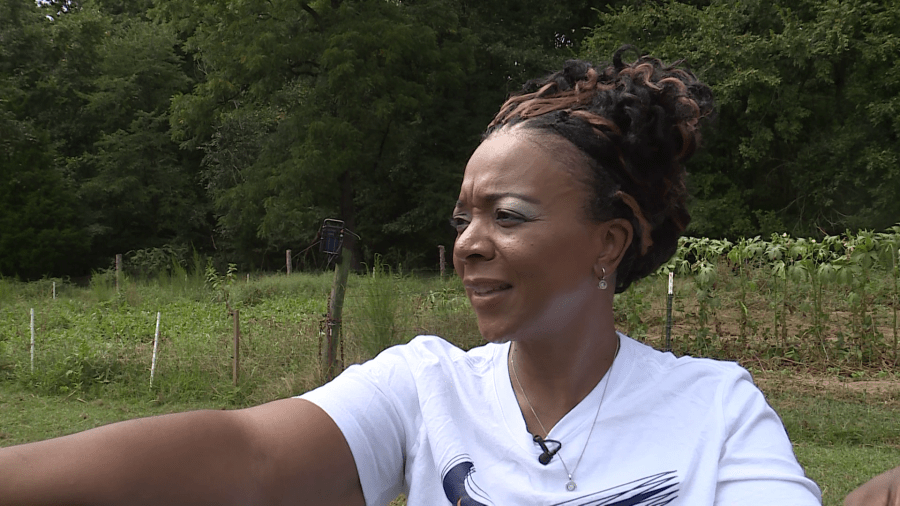
“You know, we’ve done it for so many years without assistance, looking back. They made a way and we’re going to continue to make a way,” said Smith.




